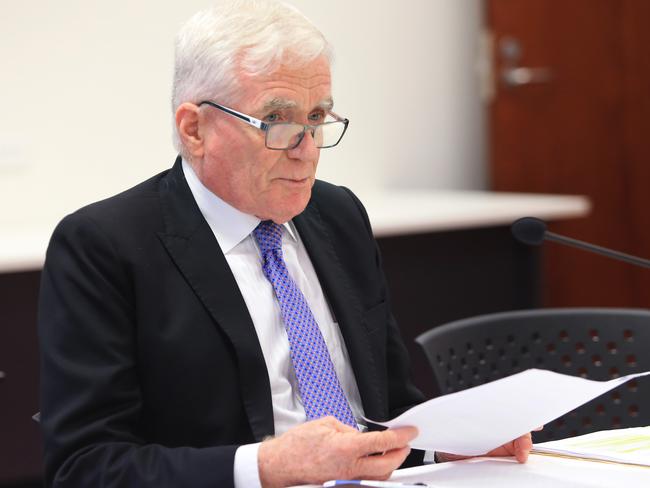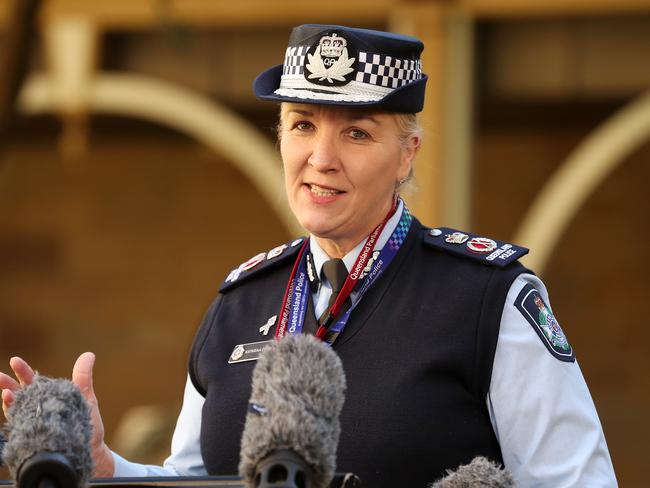Opinion: Calls for inquiry into police evidence disclosure
Civil libertarian Terry O’Gorman wants a far-reaching inquiry into police evidence disclosure after a second case where previously suppressed evidence led to an acquittal, writes Des Houghton.
Behind the Scenes
Don't miss out on the headlines from Behind the Scenes. Followed categories will be added to My News.
The Queensland Council of Civil Liberties has called for a far-reaching review of the failure of police to disclose evidence in criminal cases, after the problem was highlighted in this column last Saturday.
The council’s vice-president Terry O’Gorman also criticised the Crime and Corruption Commission’s inaction in a case where the crime watchdog referred complaints against police back to police to investigate.
Opinion: Appeal court finds gross failure in sex abuse investigation
New Ipswich Mayor takes on burning issue of waste dumping
Des Houghton: University of Qld a propaganda tool of Green Left
Controversy erupted when I revealed concerns throughout the legal community that police, including those assigned to the CCC, were cherry-picking evidence to help gain convictions while omitting other evidence that may cast doubt on the guilt of a suspect.
O’Gorman has written to Attorney-General Yvette D’Ath and Police Minister Mark Ryan after the Queensland Court of Appeal found a “gross investigative failure of disclosure which constituted a serious breach of the presumption of a fair trial” in a historic sex case.
O’Gorman said civil libertarians were asking for a high-level inquiry by an eminent retired judge.
The inquiry should delve into the inadequacies of the evidence disclosure regime in Queensland, he said.
O’Gorman raised more worrying allegations in a separate case where evidence presented to court in a rape trial was inconsistent with the evidence a complainant gave on a police tape recording.

He said: “My law firm made a complaint to the CCC in October last year about a rape case where a tape recording of the complainant containing a version inconsistent with her statement and evidence before the jury was disclosed to the prosecution by the investigating officers only after the complainant had given her evidence before the jury.
“After hearing this formerly suppressed evidence, the jury acquitted the accused.”
O’Gorman was critical of the CCC.
Nine months later, the CCC “handed the complaint back to police themselves, and the matter remains outstanding and unresolved”.
O’Gorman raised other serious concerns about police practices, including “the very late disclosure, sometimes the last-minute disclosure at the door of the court, or even partway through a trial”.
This happened all too often in Queensland “because police know they will not suffer any consequences or penalty for failure to disclose all relevant evidence”.
O’Gorman said there was no proper system in place within the police force to ensure prosecutors were handed all the relevant evidence.
The controversy was blown open when Appeal Court president Walter Sofronoff, sitting with fellow Supreme Court judges Debra Mullins and Peter Davis, set aside guilty verdicts against Kenneth Ralph Ernst and ordered a retrial.
Sofronoff, Mullins and Davis agreed with Brisbane barrister Tony Glynn QC that there had been a miscarriage of justice in the Ernst case because an investigating officer did not disclose information given to police by a friend of the alleged victim to the prosecutor.

That information would have weakened the prosecution case and would have been passed on by the prosecutor to the defence.
Now there is speculation within the legal fraternity and police of more possible miscarriages of justice with police sent back to gather fresh evidence after a person had been charged, because the initial evidence was found to be unreliable or insubstantial.
O’Gorman told me he was drafting a submission to send to Queensland’s new Director of Public Prosecutions Carl Heaton QC, Police Commissioner Katarina Carroll and CCC chief Alan MacSporran QC calling for an overhaul of the disclosure laws “in view of growing evidence that too many police are routinely ignoring their obligations”.
“In the case of my firm’s complaint about the failure to disclose in a timely manner our submission that the police concerned should be charged with an offence under Section 202 of the Criminal Code, namely disobedience to statute law, remains outstanding nine months after the complaint has been made,” he said.
A person found guilty of this breach of the code faces up to a year in jail.
O’Gorman said a recent inquiry in the UK found failings “spread across all kinds of criminal cases”.
The UK inquiry found that failure to disclose evidence tainted trials and caused “untold damage” to victims and suspects.
Originally published as Opinion: Calls for inquiry into police evidence disclosure

